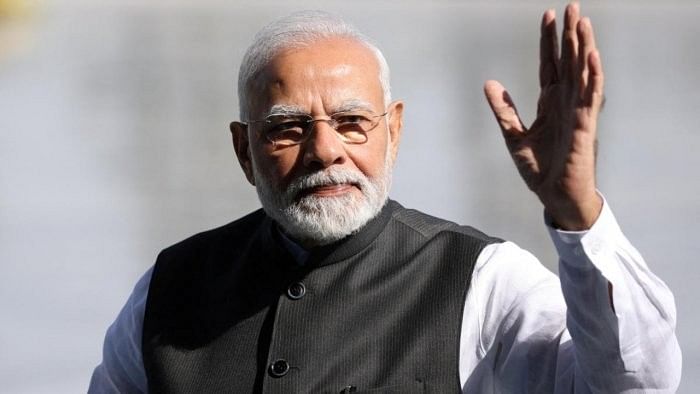
Prime Minister Narendra Modi.
Credit: Reuters Photo
Bengaluru: The Indian stock markets are expecting a comfortable majority for the Narendra Modi-led National Democratic Alliance in the ongoing Lok Sabha polls, with hopes of policy stability and continuity, and further business-friendly reforms. However, anything short of strong majority could lead to some short-term panic in the markets, analysts told DH.
Besides, there is a concern of a situation similar to 2004, when the Vajpayee government was widely expected to win, but lost to the United Progressive Alliance.
“Economy and markets have thrived under both NDA and UPA. But NDA scores in implementing key reforms, focus on infrastructure development, and inclusive growth. Opinion polls favour NDA, but markets are wary of a 2004-like outcome,” analysts at Prabhudas Lilladhar said in a recent presentation on markets and elections.
Vinod Nair, Head of Research at Geojit Financial, said that the markets are expecting as much as 375 plus seats for the NDA in the 543-seat Lok Sabha. “The markets have factored in policy stability, and a further push on manufacturing and infrastructure,” he said.
Indeed, most analysts feel that these two factors seem the most compelling to the market. The centre’s budgeted capital expenditure for the current financial year (FY25) is a record Rs 11.11 lakh crore, and as per the government, the Production Linked Incentive (PLI) schemes have seen over Rs 1.07 lakh crore of investment till December 2023, leading to production and sales of Rs 8.61 lakh crore and direct and indirect employment generation of over 678,000 people.
“There are certain stocks that would be linked to election results and will see movement around counting day, in early June The government has taken various measures on the infrastructure and manufacturing front. The stocks related to these sectors will be impacted,” said Sonam Srivastava of Wright Research.
Short-term correction a possibility
Geojit’s Nair said that if the NDA gets close to or above 400 seats, then there will be another rally in the markets. However, if the NDA secures closer to 300 seats, then there could be a sell-off.
“There could be a correction, but it will be short term, around 5-7%. The markets are working on an assumption of a GDP growth of 7-7.5%, which should be good enough to provide around 30% earnings growth,” Nair said.
What will set the course for the markets in the coming months will be the full Union Budget, expected in July. In her interim budget in February, Finance Minister Nirmala Sitharaman purposely stayed away from big-bang announcements, but laid out the reform roadmap if the Modi government is elected back to power, raising expectations among investors.
The BSE Nifty and the NSE Sensex both touched lifetime highs last week, on back of strong earnings reported by companies across sectors for the January-March quarter, and healthy domestic economic data.
Srivastava pointed out that the markets will continue to be guided by other factors, apart from election results. “Even if there is a continuation of policy, even if we get the same government back, doesn’t necessarily mean that there is going to be a big upswing. The expectations should be of incremental reforms,” Srivastava said.
“The only worry is if there is a weak government that comes into power. The markets like a clear majority and could be worried by instability,” she said.